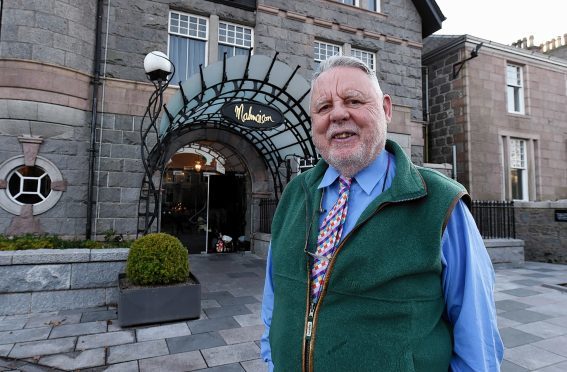Former hostage Terry Waite believes western and Arab governments must unit to defeat the “disease” of terrorism.
The one-time special envoy to Archbishop of Canterbury Robert Runcie was held by Islamic jihadists for 1,763 days and spent four years in solitary confinement.
He was captured during a mission to Lebanon while trying to negotiate the release of other hostages.
Mr Waite said he could understand the anger provoked by the Paris atrocity.
The 76-year-old added: “I can understand the feeling that something needs to be done.
“We need to stop what is in fact a disease, it was described to me a few days ago as religion gone bad.
“Killing in the name of Allah is surely not what religion is about.”
Speaking during a visit to Aberdeen, he said the long-term factors behind the rise of IS had to be addressed as well.
He said: “Islamic State must be stopped for the protection of people in the Middle East but we also have to look at why it spread in the first place.
“The long-term factors are firstly the instability of the Middle East states, both politically and religiously.
“The second is that our armed interventions have not helped.
“The removal of Saddam Hussein and the armed combat that followed upset the equilibrium of the region.
“There has to be a collective effort from the Arab and Western states to prevent further killing, but the solution will not come through warfare, but through negotiations.”
He addressed a group of about 300 students at Aberdeen University as part of the annual Being Human festival on the theme of survival in solitude.
Mr Waite was taken hostage in 1987 and was only released when a political settlement was reached at the end of the first Gulf War in 1991.
He described how he managed to keep his “sanity” while he was being held.
He said: “The thing to do is to keep your mind alive.
“To do this I began to write in my head, and out of this came by first book Taken on Trust, I remembered it all when I got out.
“In doing a job like mine you can’t expect it to go right the whole time and you can’t blame others when it doesn’t.”
